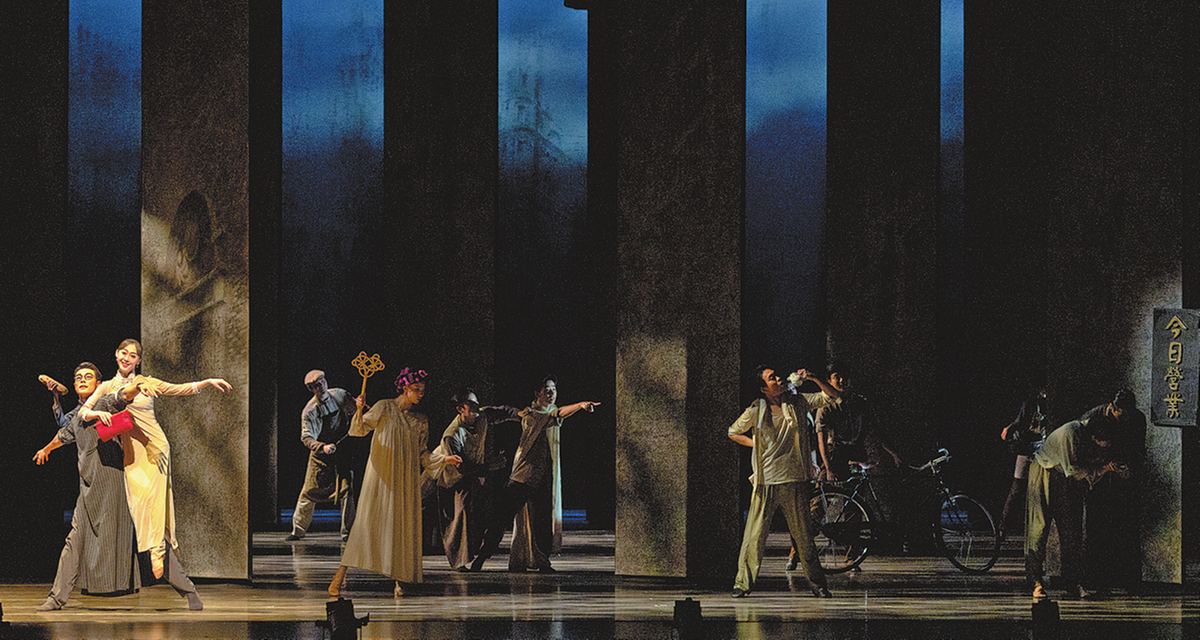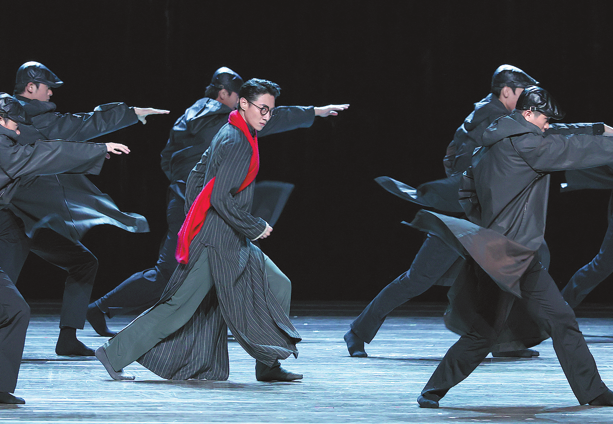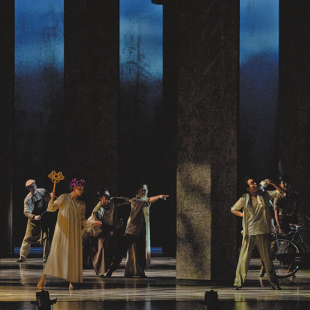Dance drama resonates across borders
Performances of The Eternal Wave in Pyongyang earn praise as principal dancer Wang Jiajun reflects on the experience, Zhang Kun reports in Shanghai.


Wang Jiajun, a principal dancer of the Shanghai Dance Theatre and lead performer in the company's acclaimed production, The Eternal Wave, says he was delighted by the audiences' warm responses following performances in Pyongyang, Democratic People's Republic of Korea, in October.
"As a dancer, I can tell the audience's feedback — whether the applause is genuine or polite," says Wang about the overseas performing experience. "After that performance in Pyongyang, I noticed the audience seemed to like such stories more than we do."
At the invitation of the DPRK's culture department, the theater troupe visited the country from Oct 7 to 12 during the celebrations for the 80th anniversary of the Workers' Party of Korea to perform the dance drama, produced by the Shanghai Dance Theatre.
So far, the company has staged The Eternal Wave nearly 800 times, of which 200 were in Shanghai, and it has been recognized as the most successful work of the theater by far. It has won a series of plaudits, including the Wenhua Award, a top national prize for Chinese stage productions.
The show was created by Han Zhen and Zhou Liya and is based on the true story of Li Bai, an underground telegraph operator for the Communist Party of China who worked in the shadows against opposing forces. He was later murdered on the eve of Shanghai's liberation in 1949.
In Pyongyang, the show won such admiration from the audience that, at the curtain call, the applause went on for a straight 16 minutes, according to a report from the People's Daily.

"The performances in the DPRK were more emotionally charged than usual," says Wang, who is also the deputy chairman of the Shanghai Dancers' Association. "This is a story that is very familiar to many Chinese people, and it resonates easily with audiences in China.
"Taking it across the national border, I believe that we performers needed to make greater efforts to transmit the strong emotions to touch the audience," he tells China Daily.
Wang was pleased to find that Pyongyang audiences received the production even better than he expected. "Backstage, after the show, a local staff member called me by the name of my character Li Xia, and said they loved my performance.
"Just like China, they have great admiration for heroes. I believe they must have had many national heroes who sacrificed a lot for the welfare of the people of the DPRK."
To make the show easier to understand, the production adopted innovative performing techniques from other forms of theater, as well as storytelling methods from movie montages. "All of this helped to achieve a clearer storyline, more convincing performances from the dancers, and made it more accessible to the audience," he explains.
"We hope to take it abroad to international audiences. Maybe in some countries people may not identify so well with the revolutionary background of the story, but it is more of a story about love and keeping faith in the most difficult times. I think this will translate well into any culture," Wang says.





































